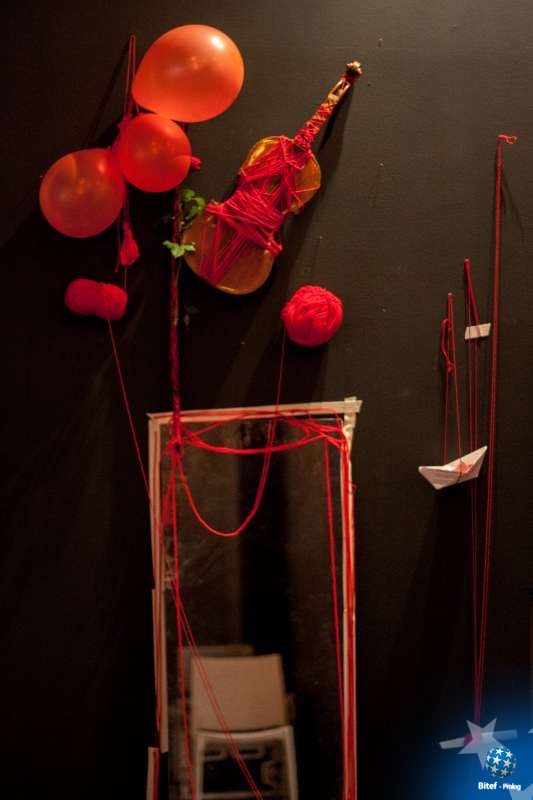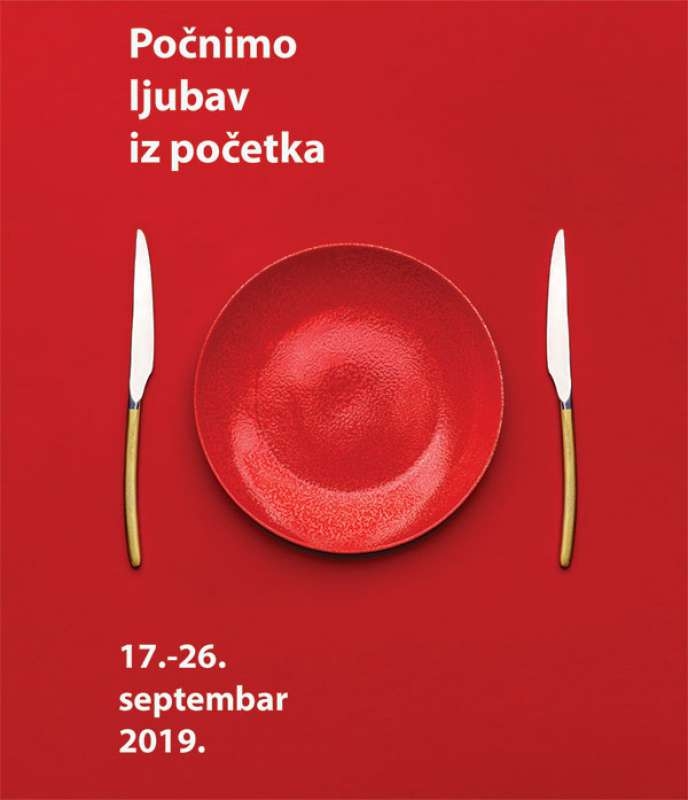This year, Theatre Teatar Mimart marks its 35th anniversary, and Bitef Polyphony the 20th. It is safe to say that this love “started over” in the first days of Polyphony. What are your impressions of this connection as a proof of quality? What Magic thread makes it so strong?
When it was founded, Theatre Teatar Mimart was the first alternative theatre in Belgrade, and one of a few in the Balkans. It was very easy back then to find space for workshops and performances, it was easy to obtain funding from the state and from the donors, and to find people interested in exploring through movement. For the first fifteen years, it was possible to carry out anything, without making any compromises. And as we reached the crossroads, as we started wondering how to proceed, as other groups appeared, and as we started searching for another vertical path to continue along, Bitef Polyphony appeared. Exchange of experiences, sharing of the keys for original work which we had found, all of it brought new energy to continue in a better and more intensive way. Yes, Teatar Mimart profited a lot from this platform for magic interweaving…
This year at Bitef, we talk a lot about technology which is becoming dominant in our lives. Does it affect art creation and an intimate feeling of the word in Teatar Mimart? Is there any art in “artificial intelligence”?
As a Master of Technology, I think that new technologies can, but do not have to, contribute to the development of new theatre codes, since I see 21st century theatre as interdisciplinary theatre in which body still is the main subject on stage. This year, Bitef has the slogan “Let’s Start Love Over”, which is important also for using new technologies in theatre. But I’d love to include the robot Sofija into the performance, as she knows how do everything - except to dance.
Teatar Mimart and Polyphony have become a unique synonym for community, I think. It is also the concept that the performances at this year’s Bitef explore. Do you think that it is sustainable at this time and place, and could it be the Magic that we need?
The concept of community is idealized in the working process, but it takes magic to keep it going. We call it theatre Magic, but what it implies is an exploration of the elements of stores and myths, tracing cults and rituals through past, present and future. And since time does not exist, which is an issue raised by this year’s Bitef, we need a “magic wand” to wake us up. The world of magic can be both white and black, it can point at wrong direction, it can enchant both artists and the audience. Omaja is a mythical creature from the Balkans who has been woken up by this political crisis in a historical moment, and we should watch out lest we get under her spell.
I have always had an impression that body is a perfect lie detector and an image of man’s deepest nature. Teatar Mimart has been using this detector for 35 years to explore and demonstrate the world in us and the outer world. How much has human essence changed in those 35 years? How does body live today, has it sapped under the reins of time, or does it still pulse with truth?
A wonderful question that each body can answer for itself. Body remembers everything we have gone through, and it anticipates what is yet to come. To quote the literary author Ivo Andrić: “Body propelled into space, exposed to hundreds of influences, and yet alone, and always longing to be itself”. The freedom of body movements through our work has changed in time, from complete freedom to traces of immobility, but it is caused by post-truth. Our associates are now more under tension and their bodies cannot endure long trainings, and it has happened because of stress, of accelerated lifestyles, and the need to survive. It is as if the spirit, the mind and the body are drifting apart…
Within the project of the European Capital of Culture Plovdiv 2019, Teatar Mimart, together with the City of Plovdiv Foundation, participates in the project Island Magic. What makes this cooperation important and what do you find most inspiring in this project?
The biggest challenge was how to find an appropriate phenomenon we should tackle in order to contribute to the topic “Together”, which could link the two cities, Belgrade and Plovdiv, and the two countries: Serbia and Bulgaria. The exchange of experience between the artists was the main idea of the project, but we did manage to find a link since both of the cities have rivers with islands on them. The river Marica runs through Plovdiv, and the Battle of Marica changed the history of Serbia. We were particularly inspired by the mythological and historical story of Hecate, an ancient goddess. There is a Hecate’s temple in Plovdiv and there used to be one in Belgrade which is currently under 3D reconstruction.
The “abandonment of the soul” is an interesting notion, which was addressed by Barbara Fioldeshi, a dancer, performer and a producer, within her interactive presentation Theatre Magic. Does the idea of the revival of long forgotten, abandoned and destroyed spaces actually represent an attempt to employ performing events and other art forms to deliver a dose of infusion into human, abandoned souls?
Reviving abandoned spaces can be an infusion for inspiration and the creation of links between mind, soul and body, in order to be able to foresee potential tragedies. For me, this approach was important as a form of activism. Teatar Mimart has done similar projects, but the effect was mostly to point out at sites, at space that needs reconstructing, which, after that, did get rebuilt, but we don’t have the experience of a creative infusion, on the contrary - we were exhausted.

